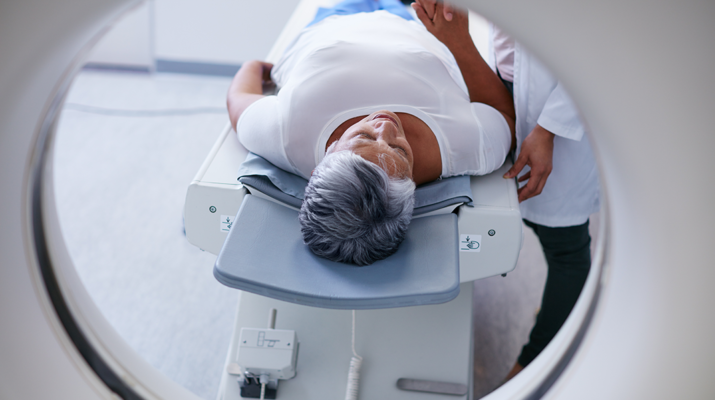By Deborah Jeanne Sergeant
If you possess diverse interests in medicine and science, working as a nuclear medical technologist might be for you. It also takes a close attention to detail, as these technologists work with radiation.
“We use radio isotopes for diagnosis and treatment,” said Robert Miletich, chairman of the department of nuclear medicine in the Jacobs School of Medicine and Biomedical Sciences at UB.
“Because we’re dealing with radiation, there are a number of rules that have to be followed to protect the people and public from the effects of radiation. The rules are imposed even by the federal government.”
Each patient only receives the equivalent of the radiation received in a CT scan. Nuclear medical technologists “prepare, administer and measure radioactive isotopes in therapeutic, diagnostic, and tracer studies using a variety of radioisotope equipment,” stated the Bureau of Labor Statistics.
In addition, they “prepare stock solutions of radioactive materials and calculate doses to be administered by radiologists; subject patients to radiation; and execute blood volume, red cell survival, and fat absorption studies following standard laboratory techniques.”
The Bureau of Labor Statistics further states that the annual mean wage in the Buffalo area is $84,090. That’s pretty good for a career that requires only a bachelor’s degree.
Candidates for working in nuclear medical technologists must also pass a board exam, which when passed gives them a nationally recognized credential.
Miletich said that good skills in math, science—particularly in biology—and physics are helpful “as we’re dealing with radiation. It’s good for someone reasonably intelligent and responsible. They have to have a certain aspect of empathy as you deal with sick patients every single day. It does require multiple skills.”
Miletich called the educational requirements “intense” and “very rigorous.” Plus, the required GPA is a B average.
“I did this because I’m a brain scientist,” Miletich said. “What we do in all nuclear medicine is study the physiology of different organ systems. These radiologic drugs mimic molecules already in the body. It’s mostly physiology. I wanted to be able to study the functioning brain non-invasively and there’s no better way than nuclear tags. It’s a very exciting field. The fact that we can do these things in humans and not have to do anything invasively is how we cure diseases. We study the disease itself, not models.”
Miletich is board-certified in both neurology and nuclear medicine.
Nuclear medical technologists can eventually take on administrative roles in hospital leadership, segue into research, or enter academia.
The demand for the career is high, as every hospital needs nuclear medicine technologists. The retiring baby boomers are not being replaced at a sufficient rate to keep up.
“I don’t see this career going away,” Miletich said. “The US is falling behind the rest of the world in nuclear medicine because there’s not been great support. All hospitals use nuclear medicine if they have radiology.”
Paradoxically, only a limited number of schools offer degrees aligning with this career path. Susan Tiby, assistant director of nuclear medicine at Upstate at Community Campus, said that only three colleges in New York offer, University at Buffalo, Stony Brook University on Long Island and Manhattan College. And, each school only takes around a dozen candidates each year.
“There are numerous people retiring in the next three to five years and there’s already a shortage,” Tiby said. “There will be a lot bigger shortage soon.”
She likes the career because “you’re helping a variety of patients from inpatients to oncology to cardiac patients. It’s rewarding to know you’re helping people.”

